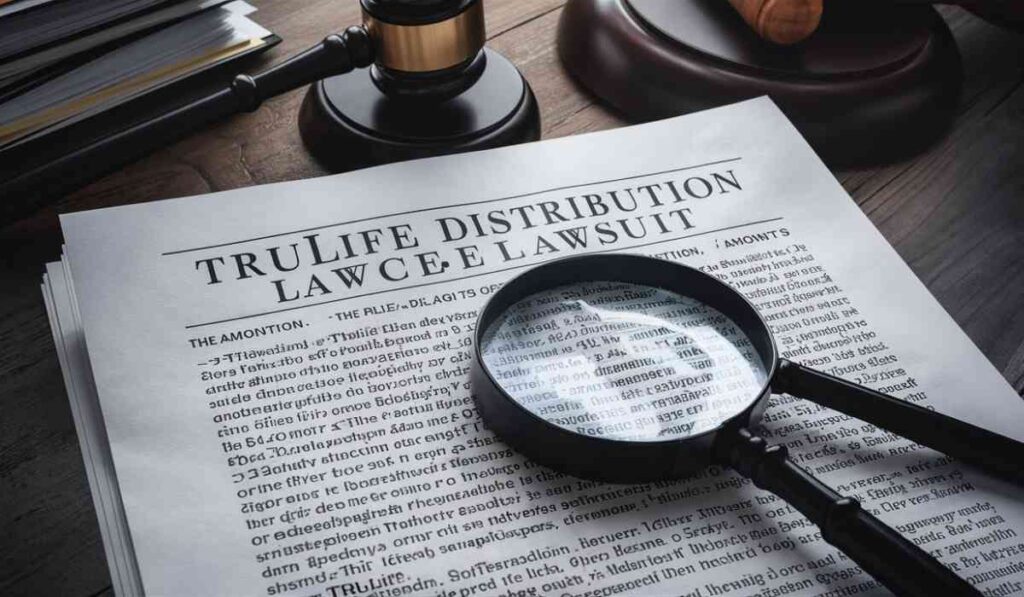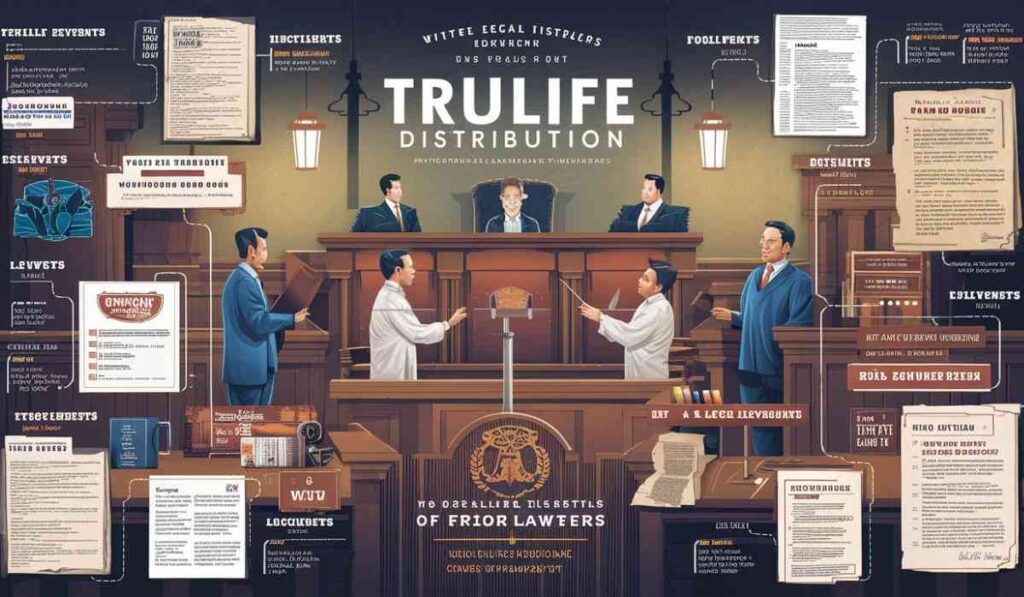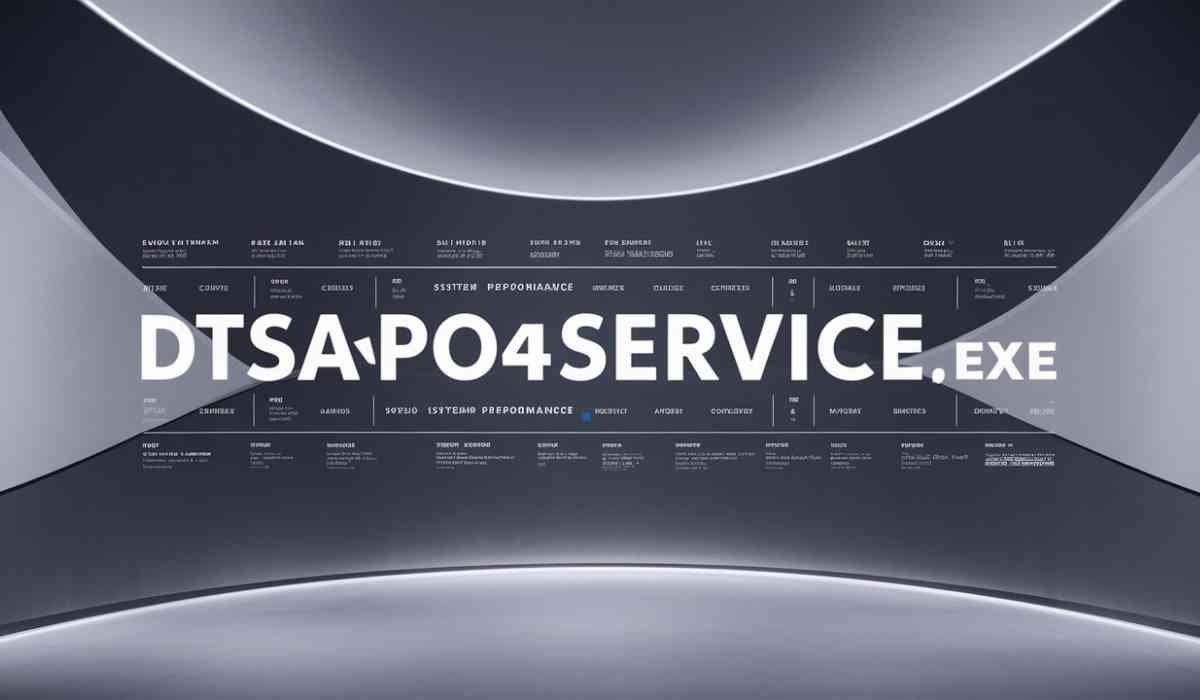Welcome to an in-depth exploration of the Trulife Distribution lawsuit, where we delve into the intricacies of this legal feud.
Gain valuable insights into the parties involved, the detailed allegations, and the implications for stakeholders and consumers. Let’s uncover the truth behind this compelling legal saga.
Continue reading this article, and you will gain insightful knowledge about the intricate legal battle, detailed allegations,
And the profound implications of the Trulife Distribution lawsuit on stakeholders and consumers.
Overview Of The Trulife Distribution Lawsuit
The Trulife Distribution lawsuit, filed in May 2022 in the U.S. District Court for the Southern District of Florida, has been a significant legal battle in the distribution industry.
The case, involving Nutritional Products International (NPI) and Trulife Distribution, was resolved before it went to trial. In June 2022, NPI voluntarily dismissed its complaint.
This article delves into the details of the lawsuit, the parties involved, and the case’s implications.
Key Parties Involved
Nutritional Products International (NPI): Based in Florida, NPI is a renowned distribution platform for nutritional brands and acts as the U.S. headquarters for foreign brands.
It was founded in 2008 by Mitch Gould.
Trulife Distribution: Also based in S, Trulife Distribution was founded in 2019 by Brian Gould, Mitch Gould’s son.
The company provides services similar to NPI, positioning itself as a U.S. presence for international brands.
Detailed Allegations

The lawsuit centred on several key allegations made by NPI against Trulife Distribution:
Misusing Case Studies: NPI alleged that Brian Gould, who had previously held a top position at NPI, used confidential NPI case studies to attract clients to Trulife Distribution.
Making False and Misleading Statements: NPI accused Trulife Distribution of making misleading and false statements to deceive NPI’s clients, though specific statements were not publicly disclosed.
Engaging in Deceptive Trade Practices: NPI claimed that Trulife Distribution created email addresses similar to NPI’s to confuse clients and disrupt communication.
Falsely Representing Partnerships and Endorsements: NPI alleged that Trulife misrepresented endorsements from celebrities and media outlets to present itself as more credible.
Legal Background And Prior Lawsuits

The legal dispute between NPI and Trulife Distribution is not new. In 2019, NPI discovered that Brian Gould had allegedly “cloned” the NPI operation.
This led to litigation that was resolved through mediation in 2021. The current lawsuit claimed that the deceptive practices continued even after the previous case was settled.
Outcome Of The Lawsuit
The recent lawsuit was resolved before it went to trial. On June 10, 2022, NPI filed a Notice of Voluntary Dismissal, which was subsequently accepted by the court, leading to the dismissal of the case.
The resolution, much like the previous case, avoided a detailed judicial examination of the allegations.
Implications For Stakeholders And Consumers

The lawsuit has significant implications for stakeholders and consumers in the health and wellness industry:
Stakeholders: Investors and partners are concerned about the uncertainty surrounding Trulife Distribution. The legal battle could affect stock prices and partnerships.
Consumers: The case raises concerns about the trustworthiness and quality of Trulife’s products. Consumers are wary of potential deceptive practices and their impact on product reliability.
Lessons Learned
The Trulife Distribution lawsuit offers several lessons for businesses in the health and wellness industry:
Adherence to Legal and Ethical Standards: Even minor legal violations can lead to significant and costly legal battles. Companies must prioritize ethical practices.
Proactive Legal Management: Identifying and resolving legal issues early can prevent more significant problems later.
Transparency and Honesty: Maintaining transparent and honest communication with clients and partners is crucial for long-term success.
Intellectual Property Protection: Companies should protect their proprietary information and respect the intellectual property of others to avoid legal disputes.
Conclusion And Future Outlook
The resolution of the Trulife Distribution lawsuit highlights the ongoing competitive tensions between NPI and Trulife Distribution.
While the immediate legal battle has ended, the long-term implications for both companies remain uncertain.
Stakeholders and consumers will closely watch how companies navigate the aftermath and whether future legal conflicts arise.
FAQs
Why did NPI take Trulife Distribution to court?
NPI accused Trulife Distribution of misusing proprietary case studies, making false statements, and engaging in deceptive trade practices.
What was the outcome of the Trulife Distribution lawsuit?
NPI voluntarily dismissed the lawsuit in June 2022, ending the legal proceedings without a trial.
How has the lawsuit affected stakeholders?
Stakeholders, including investors and partners, are concerned about the potential financial and reputational impact on Trulife Distribution.
What lessons can businesses learn from this lawsuit?
Businesses should adhere to legal and ethical standards, proactively manage legal issues, maintain transparency, and protect intellectual property.
What are the future implications of the lawsuit?
The outcome could influence future business practices and legal strategies in the distribution industry, particularly regarding ethical standards and competition.
Is there any indication of a potential settlement between NPI and Trulife Distribution outside of court?
There is no public indication of a potential settlement between NPI and Trulife Distribution outside of court. Both parties have until March 2023 to gather evidence, after which they may explore settlement options, but as of now, the case appears to be proceeding towards trial.
How has the Trulife Distribution lawsuit impacted the reputation of both companies within the health and wellness industry?
The Trulife Distribution lawsuit has garnered attention within the health and wellness industry, raising questions about the integrity and practices of both NPI and Trulife Distribution. While the full extent of the impact on their reputations remains to be seen, stakeholders and consumers are likely to view both companies with increased scrutiny.
Are there any regulatory bodies or industry watchdogs involved in monitoring the activities of NPI and Trulife Distribution?
As of now, no specific regulatory bodies or industry watchdogs are directly involved in monitoring the activities of NPI and Trulife Distribution. However, the lawsuit’s outcome may prompt increased regulatory scrutiny or industry self-regulation in the future.
How have investors reacted to news of the Trulife Distribution lawsuit, and has it affected either company’s financial performance?
Investor reactions to the Trulife Distribution lawsuit have varied, with some expressing concern about the potential financial and reputational implications for both NPI and Trulife Distribution. While there may have been short-term fluctuations in stock prices, the long-term economic impact remains uncertain pending further developments.









